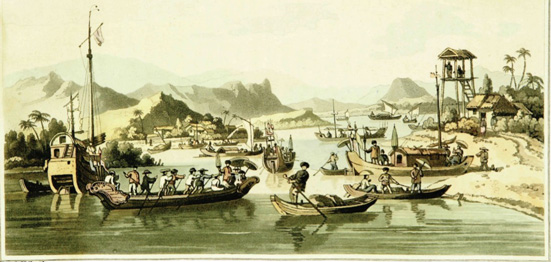2021 Ventures Ambassador talks: female entrepreneurs in early modern Vietnam
Did you know that there were female entrepreneurs in early modern Vietnam?
Neither did I until I started researching them for my history honours thesis this year. As it turns out, it was very common not only in Vietnam but across South-East Asia for low-class women to make their living by trading in local markets.
When I first learned about this, I immediately wanted to know more. Why had I not known about this before?
Despite the plethora of sources attesting to the entrepreneurial abilities of these women and the wealth they accumulated through small-scale trade, their stories have been left out of history’s pages. By studying them I could preserve their experiences, and on a more personal level, locate the experiences of my ancestors in a time where women played a pivotal role in boosting the domestic economy.
There were many reasons for women’s prominence in trade in Vietnam. First, the Confucian patriarchal hierarchy demeaned artisans and merchants as lowly professions beneath honourable men, leaving women to fill these roles!
Combined with an understanding that men and women’s work were separate domains that complemented one another, market activity formed part of a woman’s realm of responsibility. This was further exacerbated by the socio-economic turmoil of the 17th and 18th centuries. Civil war conscripted men away from their families, making women the breadwinners of their families.
Collectively, these factors meant that it was women who participated in sideline ventures in addition to managing the household and raising children. It was women who cultivated mulberry leaves to feed silkworms; weaved raw silk into clothes; transplanted and harvested rice; created handicrafts and pottery pieces; transported their goods to the market; and bartered with customers. It was women who developed intercultural knowledge and networks through their interactions with foreign merchants, making fundamental contributions to the economic livelihood of their families, communities, and country.
Thousands of foreign merchants arrived in Vietnam every year to trade silver and gold for a wide variety of goods such as spices, silks, and ceramics. It was women who formed the backbone of these industries as they made, marketed, and sold these goods, propelling the economic prosperity of both Tonkin (north Vietnam) and Cochinchina (south Vietnam).

It was women who were remembered for their industrious, hard-working and entrepreneurial nature. Many foreign visitors recalled that they were vivacious and shrewd, even likening them to the most capable and cunning of stockbrokers in London.
In recognising their abilities, expatriate traders and Vietnamese women also saw an opportunity to collaborate and maximise their profits. One merchant in the late 18th century recalled that
Many [men] have gotten good Estates by their Tonquin Ladies… by trusting them with Money and Goods. For in this poor Country 'tis a great advantage to watch the Market; and these Female Merchants having stocks will mightily improve them, taking their opportunities of buying raw Silk in the dead time of the Year. With this they will employ the poor People, when work is scarce, and get it cheaper and better done…
With their profits from trading, women were able to purchase and manage their own property. In fact, 25 per cent of all landowners in the Red River Delta region in the 18th century were women. Some acquired rice fields the size of hectares and donated it for communal use. Others funded the construction of local pagodas (tiered towers used for religious functions), the renovation of community halls, and the repair of roads and bridges.
Women were undoubtedly crucial to the social, religious, and economic development of early modern Vietnam.
Female dominance of small-scale trade continued well into the 19th century before it receded due to French colonialism and communism. However, after the Đổi Mới reforms were first implemented in 1986 to create a socialist-oriented market economy, the argument that a strong feminist tradition of entrepreneurship endures.
Although women in Vietnam today face similar gendered barriers and unconscious biases to female founders based elsewhere with 21 per cent of all SMEs in Vietnam being women-owned as of 2017, the market bustling with venders is still a feminised space. In 2010, when Anne Marie Leshkowich interviewed a couple in the famous Bến Thành markets, the wife proclaimed that her husband was nowhere near as entrepreneurial as her:
“My husband doesn’t have a head for business. Naturally, it’s because he’s a man.”
Ventures Ambassadors represent and promote Entrepreneurship at UQ in their faculties to engage new students.

